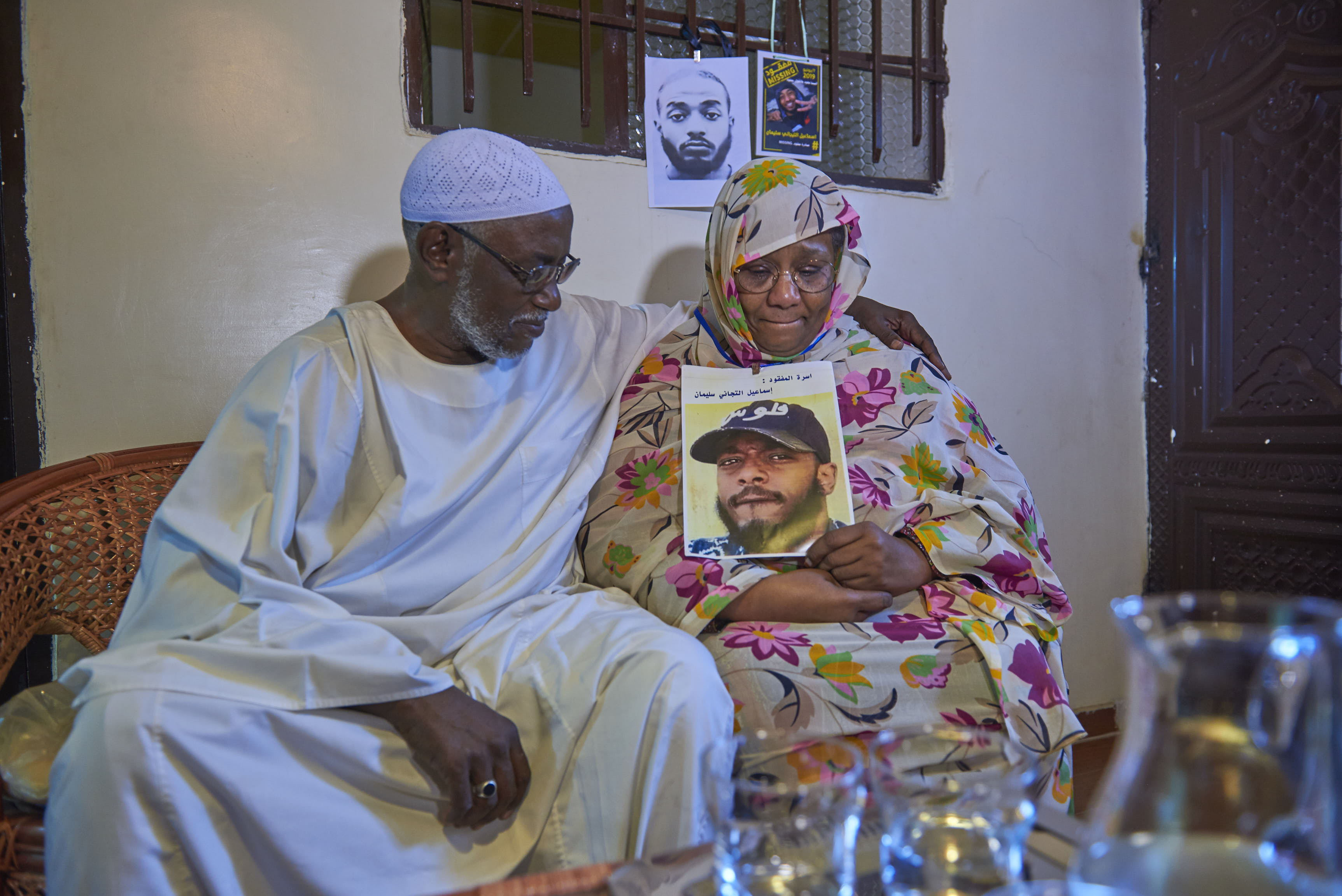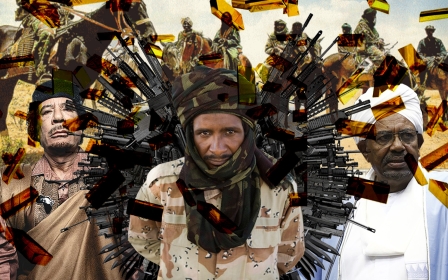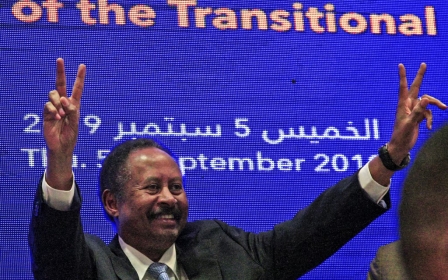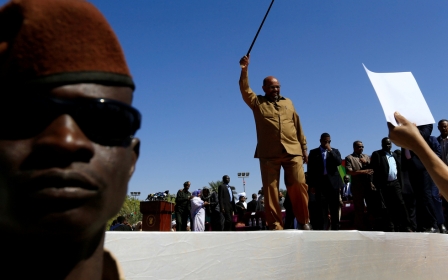Missing after the massacre: Sudanese families still searching for loved ones 100 days on

Sudan was on the edge of chaos and anyone could be killed at any time, without reason; this was the warning Sumia Osman Ibn Oaf’s son Ismail gave her the last time they spoke, more than three months ago.
Then he disappeared.
Ismail Altijani Suleman has not been seen since the aftermath of the deadly crackdown by Sudanese forces on 3 June, when they stormed through a mass sit-in outside the military’s headquarters, killing more than 100 people, locking down the entire capital Khartoum, and arresting, beating and firing on passers-by.
One hundred days later, Suleman and dozens of other protesters are still missing, unaccounted for among the names of the dead, injured or arrested.
Like others, Suleman’s family have searched prisons, police stations, morgues and hospitals, but have found no trace of him.
New MEE newsletter: Jerusalem Dispatch
Sign up to get the latest insights and analysis on Israel-Palestine, alongside Turkey Unpacked and other MEE newsletters
"My son disappeared on 7 June, three days after the sit-in was dispersed,” Ibn Oaf told Middle East Eye. “Ismail drove from home that evening and we finally found his car parked by Al-Mak Nimir Bridge in Khartoum - but he wasn't there.”
Dozens of protesters went missing during or soon after the crackdown, during which Sudan’s notorious Rapid Support Forces (RSF) paramilitary group was accused of raping women and throwing the bodies of protesters into the river Nile.
Activists responded by opening social media pages that identified the missing. One of those groups, MISSING, has found at least three people in Sudan’s morgues and have the names of at least 22 other missing - but they believe there are far people more still unaccounted for.
Sara Hashim Hamdan, one of MISSING’s leading members, told MEE they were still receiving reports, but building a full picture remained difficult.
“We are doing our best, but we are facing a lot of obstacles from authorities, including the police and security organs,” she said.
“We’re working with limited capacity and use only social media to reach people and that also makes it difficult to reach those who have no internet or no access to social media.”
Hitting a wall
Hamdan accused Sudanese authorities of trying to prevent families from opening cases and not seriously investigating the reports they have received.
“One of the main problems is that we can’t count the accurate number of the cases because people can’t open cases as they are still afraid of dealing with the authorities.
"This is why we only stick with the number of 22 cases so far,” she said, adding that she had personally been told of more than 50 cases.
“We have received credible information of bodies found in streets, the Nile and other locations...but the problem is the [lack of] official documentation.”
When contacted by MEE, Sudan's police spokesman’s office refused to comment on the accusations.
Earlier this month, Sudanese police spokesman Omer Abdul Majid said in an interview with Altayar newspaper that police had not received cases of missing people, accusing “unknown parties” of trying to politicise the issue.
MEE has however seen a copy of the police report filed by Suleman’s family after he went missing on 7 June.
"The police, security organs and also the RSF have been completely uncooperative with us. They behave like they know the truth but can't talk. It seems that there is a powerful force behind this strange disappearance," Suleman’s maternal uncle Abdul Moniem Osman Ibn Oaf told MEE.
The family believe Suleman was arrested and is being held in a hidden detention centre.
'A shame'
By the time it was dispersed, the sit-in had been in place for almost two months outside the military headquarters, where protesters were demanding a civilian government.
It had initially created the pressure that brought down three-decade ruler Omar al-Bashir, but continued when he was replaced by a transitional military council. Demonstrations continued even after the sit-in was cleared.
Early in September, the country’s first civilian cabinet was named - partially answering protesters' demands for a civilian government. The new cabinet is set to work within a power-sharing structure with the military until elections are held after a three-year transitional period.
Activists are now calling on that transitional government to take on the case of the uprising’s missing people.
Regular protests are being held and campaigners are planning ways to increase the pressure while the Sudanese Professionals Association (SPA), a leading organiser of the sit-in, said it will be pushing for a solution.
SPA lawyer Osman Albasiri told MEE the association was organising the documentation of the cases of missing people and has submitted a petition to Sudan’s public prosecutor.
The SPA is also pushing for an investigation of the places where the missing may be detained.
“The authorities are responsible, according to the law, to help those families find their relatives,” said Albasiri. “We are faced with a crime. Sudanese laws forbid enforced disappearance.”
Suleman’s mother said she has been in contact with other families whose relatives have disappeared and they want the new government led by Prime Minister Abdalla Hamdok to take their case on.
"I will go to sit in front of the presidential palace in Khartoum every day to remind the new prime minister that our issue is the most important step to achieve justice in our country, which is one of the main slogans in this revolution,” she said.
“It’s a shame we still haven’t found them.”
This article is available in French on Middle East Eye French edition.
Middle East Eye delivers independent and unrivalled coverage and analysis of the Middle East, North Africa and beyond. To learn more about republishing this content and the associated fees, please fill out this form. More about MEE can be found here.





